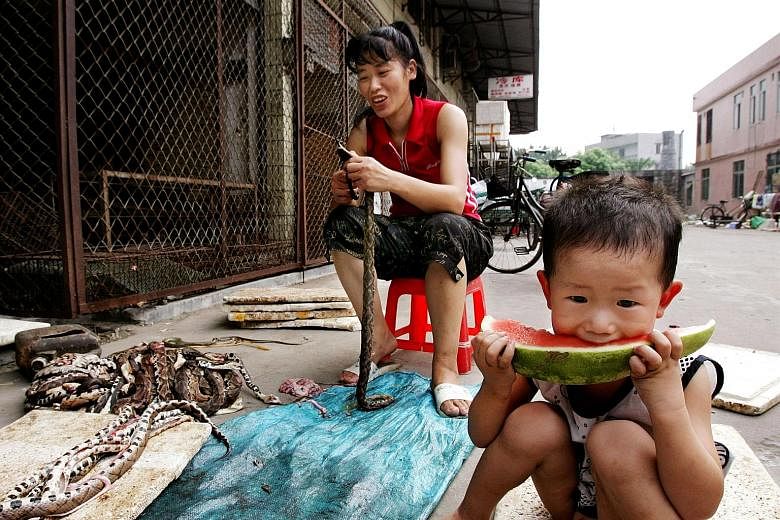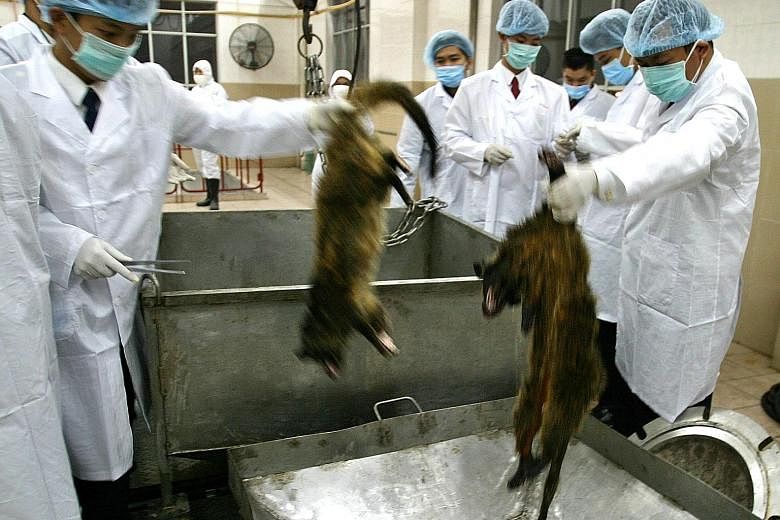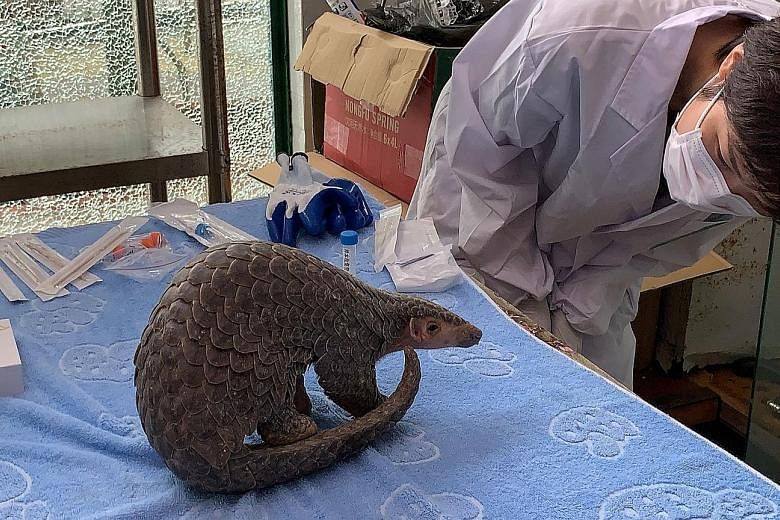On the outskirts of Bolao town, five minutes down an overgrown dirt track into the jungle of southern China's Guangxi region, Mr Hua Chaojiang breeds cobras by the hundred.
An acrid smell and a chorus of angry hisses meet us when we step into the darkness of the three-storey red-brick building. Mr Hua, who has been raising snakes for 20 years, is unfazed. He reaches into one of the pens, grabs a tail and casually lifts up a complaining - and venomous - elapid snake. The four-year-old cobra is about as thick as Mr Hua's muscled arm and nearly twice as long. He laughs when asked whether the poisonous snakes have ever bitten him. "Of course," he replies, using a metal pole with a hook to keep its fangs away from his body.
Already a subscriber? Log in
Read the full story and more at $9.90/month
Get exclusive reports and insights with more than 500 subscriber-only articles every month
ST One Digital
$9.90/month
No contract
ST app access on 1 mobile device
Unlock these benefits
All subscriber-only content on ST app and straitstimes.com
Easy access any time via ST app on 1 mobile device
E-paper with 2-week archive so you won't miss out on content that matters to you





